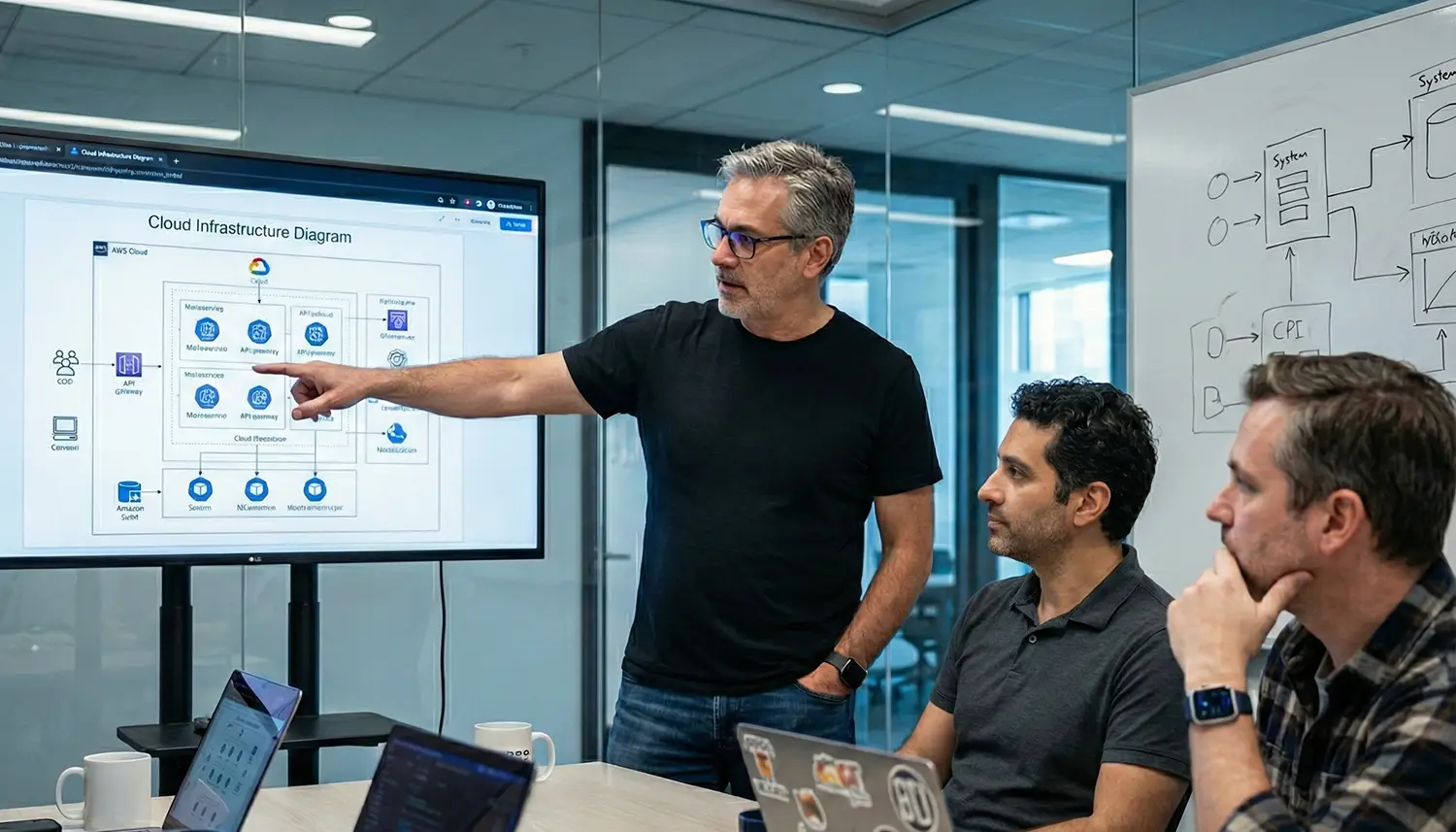Chief Information Officer (CIO) roles continue to evolve as technology grows. Since the mainframe era, CIOs’ major roles revolve around managing IT infrastructure and ensuring system stability within an organization. And now, in the 21st century, their job responsibilities lean strongly toward innovation and strategic decisions to lead digital transformation efforts.
But here’s the catch: making strategic business decisions requires timely access to high-quality data. Therefore, there’s a need for a sustainable data pipeline that ensures the right data is collected, processed, and made available. This is where data management for CIOs comes in.
In this article, we’ll explain how data engineering can revolutionize your role as a CIO and improve your decision-making power.
Understanding Data Engineering
Data engineering is the bedrock of having scalable data systems. It involves building, storing, and transforming data to make it available in a usable format for data scientists, analysts, business intelligence analysts, and key personalities in organizations. It’s the foundation of making quality data available to facilitate data-driven decisions.
Data engineering is a complex process and requires the combination of several elements. It starts with building systems, data pipelines, and methods for gathering and extracting raw data from different sources, such as data warehouses, cloud, customer data, APIs, etc. Then, indexing, cataloging, and storage of data. To present data in the most usable form to analysts or scientists, refining these data by organizing, filtering, cleaning, and assessing them is critical.
Because of the various phases and processes data passes through, data engineers create ETL (extract, transform, load) data pipelines and integration workflows using tools such as Hadoop, Apache Airflow, SQL, Python, and more. The process and the tools used depend on the data processing requirements and those of the end users’ needs. In summary, data engineers ensure that data is of high quality, accurate, and easily accessible when needed.
The Role of Data Engineering in Organizations
As described above, data engineering facilitates data accessibility from the ground up through sourcing and refining processes until it reaches the end user. It plays a critical role in organizations, particularly in decision-making, by ensuring that relevant data for strategic planning is accurately and readily available.
According to research by KX and CEBR, 80% of businesses experienced increased revenue because of access to real-time data. On the flip side, a lack of access to reliable data could impact the innovation rate of an organization. This is evident as 91% of data professionals reported that data quality impacted their company’s performance.
As organizations continue to rely on data, data engineering plays a role in data availability, such as:
- Data collection
- Data storage
- Data processing
- Data transformation
- Data governance and quality
- Data security and compliance
How Data Engineering Benefits CIOs
As crucial executive members, CIOs play a significant role in guiding organizations through digital transformation. Since they are responsible for making strategic decisions, the quality of data available to them as decision-makers is paramount.
Below are some of the ways data engineering benefits CIOs:
- Better decision-making: With real-time data analysis, CIOs can offer innovative ideas to assist a business in responding swiftly to changing market needs, resulting in better business performance and improved outcomes.
- Cross-departmental collaboration: It’s common for CIOs to collaborate with other executives like the Chief Marketing Officer (CMO), Chief Financial Officer (CFO), and Chief Executive Officer (CEO) to align technology initiatives with business goals. As CIOs collaborate with these C-Suite teams, they can channel qualified data to other departments, provide insights, and collaborate on accessible data.
- Improved operational efficiency: As data engineering procedures continuously collect appropriate data for a business, CIOs may have access to the right data to detect inefficiencies that require immediate attention within IT teams swiftly. This may eventually help the organization minimize resource waste and save money.
- Competitive advantage: Access to the right data can help businesses make quick decisions for innovation and get to the market quickly. Also, companies can stay ahead of the competition by analyzing marketing trends and customer behaviors.
Implementing Data Engineering in Your Organization
Adopting data engineering in your organization allows every department to function optimally by relying on helpful data. However, it still requires a strategic approach to ensure you get the best out of it. Before implementing data engineering, ensure you consider the following:
- Business Goal: Explicitly detail the business goals because this will inform the data engineering process needed. Different organizations rely on data for various use cases. The earlier you understand your data needs, the better it is to determine the approach, skills, and tools for your organization’s data engineering.
- Data Evaluation: To Understand the data and engineering required to achieve the business goals, investigate the data source, the mode of collection, and where the data needs to be stored.
- Develop a collaborative team: Your team’s level of collaboration and skill may impact overall data quality and consistency. Ensure that you have people with the necessary data engineering skills, such as experts in data pipelines, database management, data modeling, and more. If your team lacks the expertise needed, seeking data engineering services may be the best alternative. GAP offers data engineering consulting services.
As you implement data engineering in your organization, ensure continuous monitoring to achieve an adaptable data process.
Invest in the Right Tools and Technologies
Choosing the right tools and technologies is another critical element in implementing data engineering. Ensure you provide team members with modern tools relevant to the process and needs. Common data engineering tools include Python, Apache Spark, MongoDB, Amazon RedShift, etc. However, it depends on your needs.
Before choosing any tool for your data engineering project, ensure you research based on the specific requirements of your project. Elements to consider include:
- Research available tool options for the project by understanding their usability, performance, integration support, and more.
- Evaluate the surrounding ecosystem and choose an adaptable tool.
- Analyze the base cost and other additional service fees of the tool to avoid spending beyond budget.
The Future of Data Engineering for CIOs
Keeping up with trends is one of the major roles of a CIO. And as you adapt data engineering to your ever-changing CIO role, it’s also critical to stay ahead of its trends. Below are some of the future trends expected in data engineering:
- Automation and AI: The quest for data accuracy is beginning to overshadow the lack of data in today’s digital world. And as a large volume of data is continuously available to businesses, there’s a need to sort through and process them quickly, hence the need for automation. Automation tools and AI will streamline data engineering processes such as pipeline management, cleaning, and validation and enhance data quality.
- Rise in demand for real-time data processing: Businesses are seeking to make quick and immediate data-driven decisions, and this will continue to be in demand. This will help you prepare for the right tools that can scale to support this growing need in your organization.
- Enhanced data security and privacy: FortiGuard Lab survey of global security revealed that cybercriminals exploited new industry vulnerabilities 43% faster in the second half of 2023 than the first. And till now, the rate of cyber threats keeps increasing. Therefore, advanced technologies like blockchain and encryption will be needed to preserve data security and privacy.
- Increase in effective data governance: Data governance is a growing concern as data privacy regulations become stricter in enforcing data policies. CIOs need to build systems that strictly adhere to data governance best practices to ensure data integrity, compliance, and security.
- Continuous Learning: As data engineering processes evolve, CIOs need to keep up with trends and invest in training their teams in cutting-edge technologies like data orchestration, AI, and cloud platforms.
Conclusion
As CIOs adapt data management and engineering processes into their daily IT team workflow and other business processes, there’ll be increased efficiency, business goals and expectations can be met quickly, and customer satisfaction will increase. However, implementing data engineering requires proper planning, resource access, and expertise.
At GAP, we specialize in data engineering for CIOs, enabling seamless data integration across your teams. Our team of experts will provide you tailored guides in transforming your data engineering processes for improved efficiency. With years of experience across multiple IT verticals, we can help you enhance and streamline your IT operations. We can help you with IT services around:
- Software development for cloud and mobile applications
- Data analytics and data science
- Information systems
- Machine learning and artificial intelligence
- Predictive modeling
- QA Automation
Reach out to learn more about partnering with GAP for your data engineering project.



